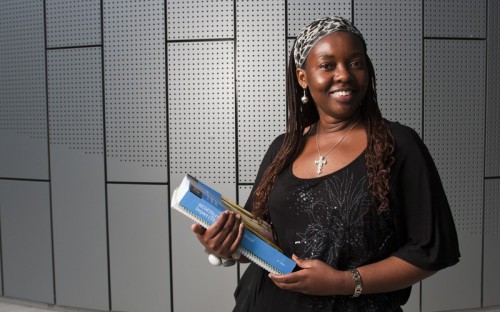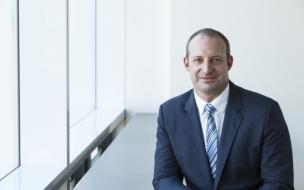She is enrolled on a two-year MBA program at UWA Business School in Australia, and has also completed its Post Graduate Certificate in Social Impact.
She works as a diversity consultant at CommunityWest, a not-for-profit consultancy firm based in Perth that provides a range of services to help communities grow.
Fadzi illustrates the way this generation of MBA students is placing more value in fulfilment, entrepreneurship and generating a positive impact on society.
This generation of business students is more interested in social impact. What's driving this shift?
Today’s business [environment] has a more global focus and possesses more diversity, which has allowed for a greater understanding of the need to not only create social impact but also impose financial impact.
I think the new generation of students is more active in social media and this has resulted in greater awareness of social justice. I sincerely believe that today’s business students are realising that a truly successful business is in touch with social, environmental and financial parts – the triple bottom line of thinking.
What motivates you to be involved in the non-profit sector?
My consciousness on social issues was initially jolted into life at the age of six after watching a news report about a plane crash and seeing people, wearing jackets bearing the UN insignia, assisting rescue professionals to look for survivors.
I started volunteering for the UN and various other not-for-profit organisations while still in high school. The sense of fulfilment; the satisfaction to see something better happening to an afflicted individual, drives me.
What role should business schools play in fostering social impact?
In order to create sustainable environments that improve the social wellbeing of communities that business serves, greater collaboration is needed. Business schools can create an environment that fosters learning, awareness and collaboration.
There is also a growing need to measure the impact on social programs and initiatives and show the social return on investments made. The research and development of such tools can be taught at business schools.
What has your MBA experience at UWA Business School been like?
The experience has been life changing in so many ways. The networks I have formed have opened up so many opportunities for me. I have met some truly inspiring people and have been exposed to some of the most innovative thinkers.
How well has an MBA prepared you for a career focused on social impact?
The financial units learned in the program have helped me develop a mental framework on the cost of implementing social impact programs and the need to measure their effectiveness.
Do you value your Graduate Certificate in Social Impact?
Not only did I learn a lot but I now belong to a special cohort of alumni who are, in every sense of the word, ready to change the world.
The certificate equipped me to the extent that I have already been able to practically share my learnings through speaking at two conferences in Australia.
It is a lovely experience – one that I hope never ends.
What are your career goals now?
I have always wanted to start my own consulting services and set up a foundation to educate and empower women. I feel that I have developed business skills to allow me to do that and also continue to acquire strategies to make that happen.
One thing social impact has taught me is the need to collaborate and partner with others, and how much more we can achieve when we work together.
How will an MBA help you to achieve them?
An MBA will provide me with credibility. There is no doubt that an MBA from UWA is a logo of integrity, a brand of excellence.
My association with UWA for the MBA has already opened many opportunities for me.
The networking has been instrumental in getting me where I already am and I have no doubt that I will achieve my goals and be able to assist others in making theirs come true.
RECAPTHA :
84
a0
82
e0








